Legacy Stories
Dennis Wirgowski
Dennis Wirgowski was a local legend for his high school team in Bay City, Michigan before starring at Purdue University and playing five seasons in the NFL for the New England Patriots, San Diego Chargers, and Philadelphia Eagles. Around his 50th birthday, his wife Bethany noticed Wirgowski change from easy-going to someone whose mood could change on a dime. His outbursts became more frequent and more violent before he took his life in January 2014. He was later diagnosed with Stage 2-3 (of 4) Chronic Traumatic Encephalopathy (CTE) at the VA-BU-CLF Brain Bank. Now a suicide awareness advocate, Bethany is sharing her husband’s story to educate others on how to talk to someone who may be suicidal.
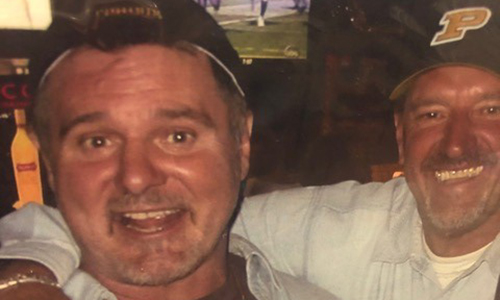
By Brandon Boyd
Superman
If it was a goal of Dennis Wirgowski’s, it was getting done. Born in Bay City, Michigan in September 1947, Wirgowski was an outstanding natural athlete made even better by a devout work ethic. Wirgowski had the talent to go far in baseball, basketball, track, or whatever sport he settled on. But Wirgowski’s best sport was football. His tall and bricklike frame made him a tremendous lineman.
Wirgowski accrued many nicknames in life. Some of them were easy products of his name. Denny. Wirgo. Others, he earned.
Opponents trying to block Wirgowski simply bounced off him while at Bay City Central High School. Len Hoyer of the Detroit Free Press likened Wirgowski’s discarding of opponents to that of Clark Kent’s discarding of evildoers. Dennis Wirgowski was dubbed “Superman.”
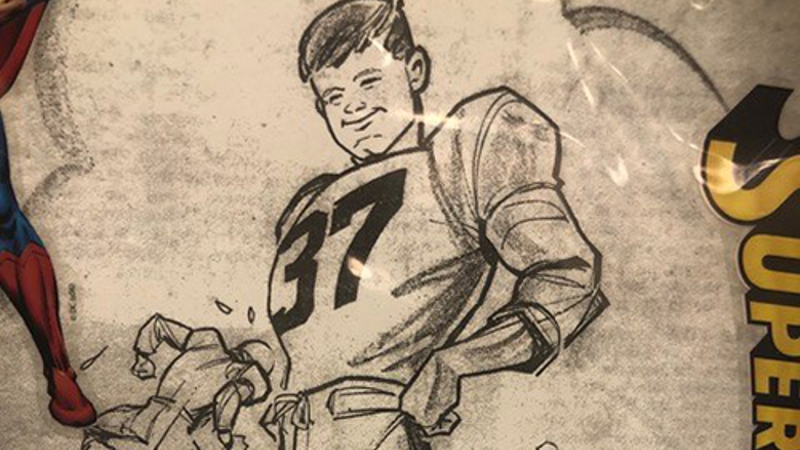
After a prolific high school career, including an undefeated Michigan Class A State Championship run in 1965, Superman chose to attend Purdue University. Wirgowski’s winning streak traveled with him to West Lafayette and the Boilermakers finished 8-2 in each of his three seasons with the team.
He was selected in the ninth round of the 1970 NFL Draft by the Boston Patriots. He played three seasons there before being traded to the Philadelphia Eagles where he played for one season. In 1974, he tried out for the Cleveland Browns but was cut before the season started. Injuries forced the Browns to call Wirgowski for another shot, but he declined and retired from football at age 28.
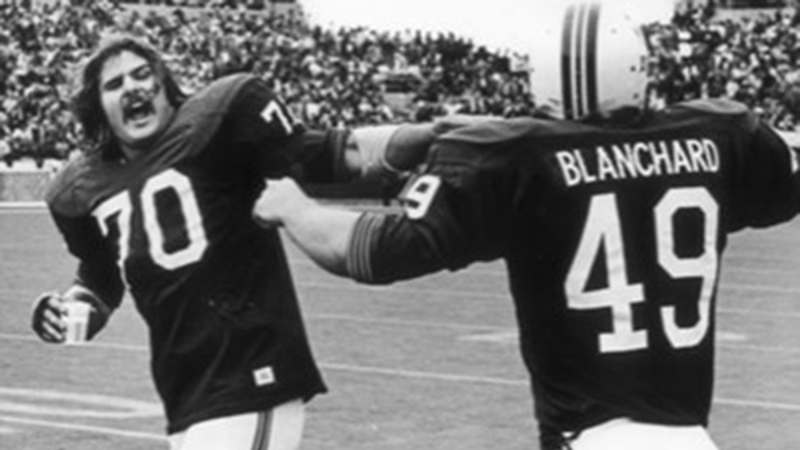
Nuts
After a brief stint living in California, Wirgowski moved back home to Michigan. He earned a teaching degree and worked as a warehouse manager for Stevens Worldwide Van Lines.
Wirgowski teamed up with a friend named Denny Nusz to start Backstreets Bar, one of Bay City’s first sports bars. The name Nusz lent itself to the nickname “Nuts,” which became Wirgowski’s catchall word. He said “hey Nuts” to Nusz or any bar patron whose name he couldn’t remember. Over time, Nuts stuck as another of Wirgowski’s nicknames.
Wirgowski owned Backstreets in a financial sense, but he owned every room he walked into with the power of his spirit. He had a gift of connecting with anyone he met and could make them laugh effortlessly.
At Backstreets and other local bars, Wirgowski’s gregarious personality was on full display. He was infamous for offering to treat anyone and everyone to lunch at nearby Bell Bar. It just so happened their lunch would be the bar’s already complimentary meat snacks.
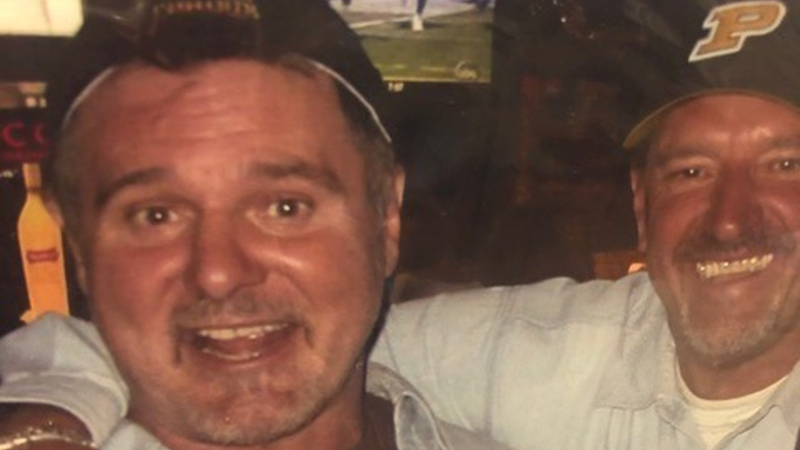
Dennis Wirgowski (left) poses with fraternity brother Barry Houseal at a Purdue bar in West Lafayette, Indiana.
Wirgowski did open Backstreets’ cashdrawer to sponsor local sports teams. One of those teams was a local softball team, which starred a young woman named Bethany Stewart.
Many bargoers were starstruck by Wirgowski’s celebrity status – but Bethany wasn’t fazed. She preferred his sense of humor, competitive nature, and the way he commanded a room. The two started dating shortly after meeting.

“He had this larger than life personality,” she remembers. “He was the life of the party. He could talk to anybody like he’s known them for a million years.”
Dennis and Bethany enjoyed playing sports, long walks, and traveling. In their travels, the scenery changed but Nuts was still Nuts. During a trip to Boston, his old neighbor appeared and the two talked for hours. In Florida while stopped at a red light, Dennis admired the motorcycle in the next lane over. He and the motorcyclist chatted like old friends through several green light cycles.
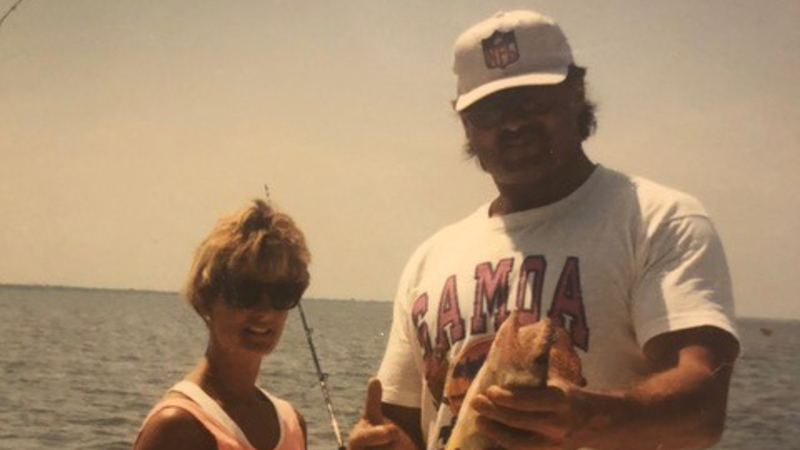
After several years of dating and engagement, Wirgowski and Bethany married at a courthouse in Port Huron, Michigan and enjoyed a honeymoon along Cape Cod, Massachusetts.
A different Dennis
The Dennis Wirgowski Bethany fell in love with was incredibly happy-go-lucky. Nothing bothered him. But by his 50’s, Wirgowski became more easily agitated. Bethany saw his mood change from one day to the next.
“His tolerance for things was really short,” Bethany said. “He would get so angry and his temperament was just different. His reactions to things was so irrational.”
The reactions were irrational, but initially harmless. Eventually, they became dangerous.
One day while on his bike, a young motorist drove over a puddle that splashed Wirgowski. Assuming the driver did it on purpose he erupted, and physically attacked him. Police intervened and came to the Wirgowski’s house to inform Bethany.
“He’s riding his bike in the rain,” Bethany said. “I told him I don’t think the kid intentionally drove by you to splash you, but he had that paranoia that people were out to get him.”
It became The World vs. Dennis and paranoia colored Wirgowski’s later years. Something as simple as a mandate to switch his cable boxes from analog to digital could lead to an anxiety attack.
Wirgowski and Bethany loved walking their dogs Coco, Barkley, and Zoe along the beach. One day a neighbor almost hit the dogs with her car. The run-in enraged Wirgowski. He was left banging on the neighbor’s door until the police tore him away.
Wirgowski was not without remorse for his actions. He wrote the neighbor an apology letter the next morning, a testament of the dime-turning his mood could take. Enraged then gentle. Paranoid then sane.
Around this time, Wirgowski began to see similarities between his story and those of other former NFL players he read about in the news. He collected news clippings about Junior Seau and other former players affected by the degenerative brain disease CTE. Wirgowski heartily empathized with one article which described playing football as running into a concrete wall at full speed.
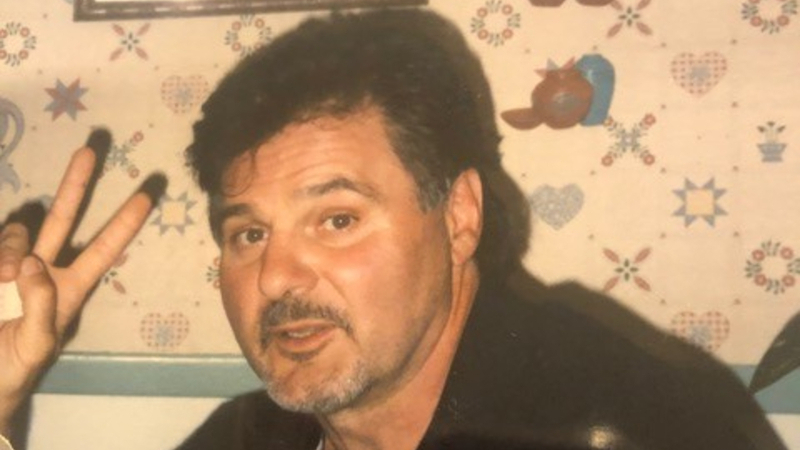
Bethany repeatedly encouraged her husband to seek help. She was finally successful in September 2013 when Wirgowski agreed to see a therapist. He was stoic upon his return from the visit, offering no details to Bethany.
She asked if he had told the therapist about his football career. Wirgowski insisted that wasn’t important. Bethany, an ER nurse, reached out to the therapist and disclosed his football career and his new hobby of clipping news stories in confidence. The disclosure got back to Wirgowski, causing him to explode on Bethany. He never sought help again.
Perfect storm
On January 25, 2014, Bethany woke up to hear Wirgowski shoveling their driveway. When he came back into the house, he told Bethany he loved her and walked back out the front door.
Later that day, Dennis Wirgowski took his life. He was 66 years old.
Wirgowski’s suicide devastated Bethany, Dennis’ family, and their community. She couldn’t escape the guilt of not acting sooner.
“I knew he was sad, I just didn’t know he was suicide sad,” Bethany said. “Being a nurse, I felt like not only a failure to my profession, but also to my husband, and to his family, because I had lived with him.”
Bethany says she and Wirgowski’s many close friends missed signs to get him help. She counts the news clippings, the depression, and his personality shift as calls for help that he wanted to talk to someone. She sees his outrage over her contacting his therapist as his worry that Bethany was connecting the dots that he was contemplating taking his life.
At the same time, Wirgowski’s impulsivity may have shrouded any potential warning signs.
The day before his death, Dennis called Bethany to make sure she got his prescription for an antibiotic filled so he could get his teeth cleaned.
Five months prior to his death, Wirgowski fell off his bicycle and broke his hip. He had surgery to replace the hip and worked out every day for four months to rehab. His diligence paid off and his hip healed.
“Why would somebody rehab that hard and then take their life?” wondered Bethany.
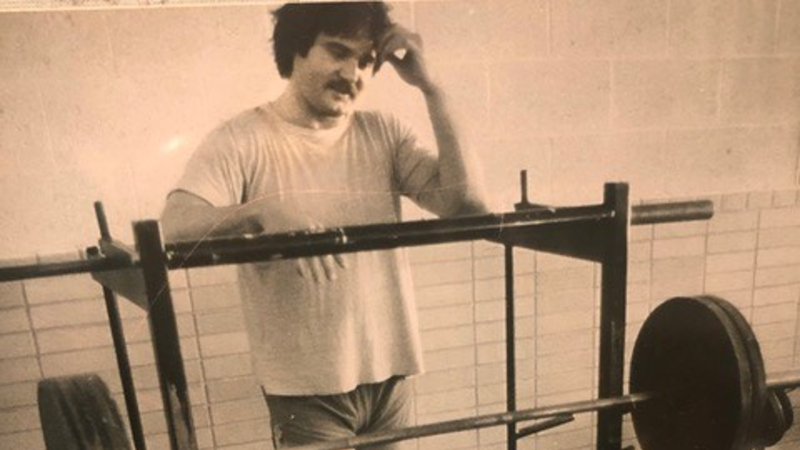
With his recovery from hip surgery, Wirgowski had once again conquered something he set his mind to. But was then devastated to learn his knee would also need replacement.
“There were a lot of things for that perfect storm for him to want to take his life,” said Bethany.
The American Foundation for Suicide Prevention says there is no single cause for suicide. It most often occurs when stressors and health issues converge to create an experience of hopelessness and despair.
Knowing her husband needed help, Bethany wishes she had asked him one question.
“It just will probably, always traumatize me that I didn’t ask that little question, ‘Are you thinking of suicide?’” Bethany said. “Because learning what I know now, that’s what people want you to ask. I have it in my mind if I would have asked him, he probably would have broken down and told me.”
Relief
After Wirgowski took his life, Bethany looked through his email. She found he had been corresponding with a former NFL player who was a vocal advocate for concussion awareness at the time. Bethany emailed the player to inform him that Dennis had taken his life and the player informed Bethany about the option to donate Dennis’ brain to the VA-BU-CLF Brain Bank in Boston. She immediately agreed.
Researchers at the Brain Bank diagnosed Wirgowski with Stage 2 to 3 (of 4) Chronic Traumatic Encephalopathy (CTE).
Bethany felt relieved by the results. The diagnosis helped to explain Wirgowski’s personality changes and bizarre actions. Still, Bethany knows she only saw the tip of Wirgowski's symptom iceberg. He had efforted to hide his struggles from her.
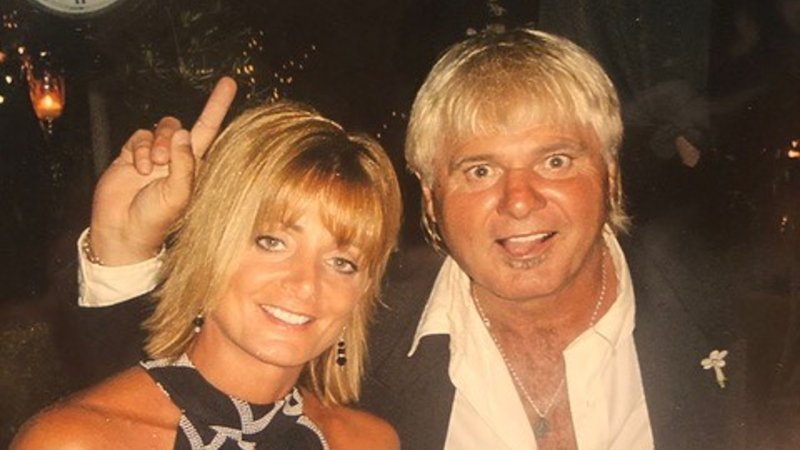
Those with CTE can experience symptoms such as depression, rage, and suicidal thoughts, but we still need to know more about why these symptoms occur. Research is ongoing at the Brain Bank to uncover the relationship between CTE pathology and psychiatric symptoms like depression and suicidal ideation.
Looking forward
Wirgowski’s suicide launched Bethany into suicide advocacy. She and other impacted families participate in Midland, Michigan’s Walk for Hope, an annual 5K walk that promotes suicide awareness.
She met Barb Smith, founder of the Barb Smith Suicide and Resource Network. Barb helped Bethany tremendously in the months following Wirgowski's death. Bethany became a safeTALK trainer to educate others on how to talk with someone who may be suicidal. Barb contracts Bethany to give safeTALKs to those in need.
“I was an ER nurse at that time for 17 years, and I only knew suicide from a distance and never had any type of formal training on what to recognize or what to ask,” Bethany said. “You don’t have to fix anything. You just have to realize how to identify it. And people aren’t always as direct as we would like them to be. And that’s why you have to read into what people are trying to say to you.”
Bethany also helps run an annual football camp in her husband’s name. The camp is a free, one-day event for local children that focuses on football skills as well as mental well-being of young athletes. Last year, camp attendees heard the Concussion Legacy Foundation Team Up Speak Up speech about the importance of speaking up for a teammate who is showing signs of a concussion. Local coach Dick Horning gave the speech and connected its message to his late friend Wirgowski.

“The whole speech was amazing. There wasn’t a dry eye in there,” said Bethany.
Six years after Dennis’ death, Bethany’s grief and “what-ifs” persist. But so too does the image of her Superman, smiling, laughing, and talking sports with a Nuts at the bar.
Suicide is preventable and help is available. If you are concerned that someone in your life may be suicidal, the five #BeThe1To steps are simple actions anyone can take to help someone in crisis. If you are struggling to cope and would like some emotional support, call the National Suicide Prevention Lifeline at 1-800-273-8255 to connect with a trained counselor. It’s free, confidential, and available to everyone in the United States. You do not have to be suicidal to call. If you’re not comfortable talking on the phone, consider using the Lifeline Crisis Chat.
If you or someone you know is struggling with lingering concussion symptoms, ask for help through the CLF HelpLine. We provide personalized help to those struggling with the outcomes of brain injury. Submit your request today and a dedicated member of the Concussion Legacy Foundation team will be happy to assist you.
Suicide Prevention Resources

Nobody should have to go through a crisis alone. Dial 9-8-8 if you or a loved one is in crisis or suicidal.
Suicide Prevention Lifeline
We can all play a role in preventing suicide. Learn the five steps to help you #BeThe1To support someone in crisis.
#BeThe1To Resources